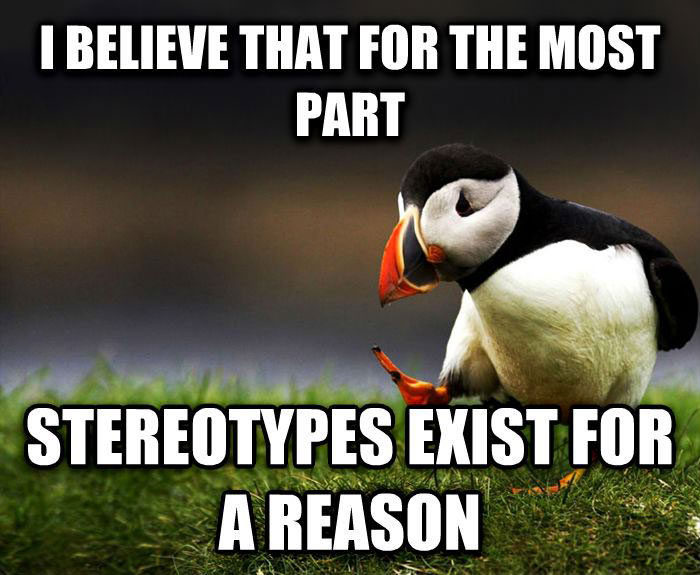This article has been a long time coming. In fact, it’s about 2 years late to be terribly relevant, but given the hullabaloo the got raised this last week over some girl’s Asian-themed prom dress this is the best chance I’m going to have to address it. Or at least until the Democrats get back into office and the Trump supporters go back to complaining about Social Justice Warriors instead of trying to defend their mess – but I digress.
This dress right here, for reference.
Cultural Appropriation. Christ, what a mess. There’s nothing worse than starting one of these articles and getting exhausted with it before I’ve even finished the research. With this topic, that exhaustion kicked in right about the time where I tried to answer a very simple question:
What is the definition of Cultural Appropriation?
Oh sure, I know what cultural appropriation is. Everyone knows what it is, or at least has an emotional reaction to the phrase lined up and ready to go. But even with the most popularly understood ideas a definition is important, because the definition determines what we’re trying to prove. One of the most frustrating things as an ethicist is when two groups furiously rage at each other, without realising that they’re talking about totally different topics.
Miscommunications like this happen all the damn time, either willfully through Strawman fallacies (ie. ‘Oh shit, my opponent may have a point! Better move the goalposts to prevent having to admit that’), or accidentally through simple ignorance and a disinterest in other perspectives.
This crap constantly happens in politics because of how much the pollies love a catchphrase: ‘Freedom!’, ‘Australian values’, and good old ‘Jobs and Growth!’ all come to mind. As with Cultural Appropriation, you know what each of those slogans means – to you. But any of those slogans could mean anything in the right brain. Freedom? Freedom to do what? Under what conditions? With what limitations, and if none, then despite what consequences?
You ever notice how rabid enthusiasm seems to go hand-in-hand with disinterest in fine details?
Dig into a definition for the term and disagreements bubble up right quick – because now we have a measurable standard the debate must be held against. And someone’s (or more accurately, nearly everyone’s) idea of ‘freedom’ is going to turn out not to fit that definition.
And thus, in many ways, this article on Cultural Appropriation if over before it even begins, because I’ll be buggered if I could find a single god damn consistent definition for the idea.
Now to be fair, there are some broad themes in how those who seek to fight Cultural Appropriation define it, and 99% of them basically boil down to ‘Don’t do this’:

And on the face of it, it’s easy to see why ‘not doing this’, especially for white folk in the USA, is a good argument; you’ve got the (probable) ancestors of the people who genocided the original inhabitants of the country they now overwhelmingly occupy, dressing up in that culture’s highly formal ceremonial gear for fun. Tacky at best, flat-out enthusiastically racist at worst.
I mean, if you run over someone’s cat, then wearing a cat t-shirt around them is not exactly good behaviour, right? And sure, maybe it was your ancient racist great-grandpa who actually ran over the cat, and maybe you’ve apologised for him doing that, but you probably still shouldn’t wear the cat shirt. Kinda implies you don’t actually regret it at all, or at least a vaguely psychotic inability to recognise how that would make your victim feel.
 Though I kinda feel that wearing this makes you a monster under pretty much any circumstances.
Though I kinda feel that wearing this makes you a monster under pretty much any circumstances.
But as the recent Asian Prom Dress fiasco illustrated, ‘not being a dick to fucked over minorities’ isn’t the only thing Cultural Appropriation is about – it goes quite a bit further than that. Here’s the best definition I could find that captures the idea as a whole:
“the adoption of the elements of a minority culture by members of the dominant culture. It is distinguished from equal cultural exchange due to the presence of a colonial element and imbalance of power.
Cultural appropriation is often portrayed as harmful in contemporary cultures, and is claimed to be a violation of the collective intellectual property rights of the originating, minority cultures, notably indigenous cultures and those living under colonial rule.”
(I’m going admit up-front here that I got this from wikipedia, which should illustrate how desperate I was getting for a functional definition. Hey, you want a full-blown lit review, pay me. In the meantime I’m more than happy to revise this based on any high-quality meta-research I’m unaware of.)
Now on the face of it, this theory makes some sense – we’re not just talking about one culture adopting something from another, which is obviously incredibly common and a key way humanity has progressed. Nor are we talking about offence here, which I’ve previously written is completely irrelevant from an ethical perspective, since it’s totally subjective in nature (though of course many people have also been offended).
Nah this is a commentary on power – specifically a more powerful group’s ability to take icons of a less-power group regardless of the less-powerful group’s opinions on the subject. More power naturally means less accountability, which in turn gets you a situation where the powerful group ends up running around drunk pretending to be an ethnic minority and stereotyping the shit out of them.

Now sure, you could argue that plenty of stereotyping goes on of white people by minority groups, and whether it’s of the same significance, it’s no less factually false that when it happens to minority groups. But this is where that point about power comes in; you can misrepresent white boys like me all you want and I won’t give a shit. Not because you calling me a ‘Honkey’ isn’t unethical (bigotry is bigotry) or because it isn’t potentially offensive (if I decide it is, it is, since that’s all that’s required), but rather for a much simpler reason:
You can’t touch me.
Because the class you’re using to stereotype me with is, at least in general, FAR more powerful than yours. And thus you can make all the ‘small-dick cracker’ jokes you like, because at the end of the day, that’s where things end; with jokes. With the exception of a very few places, white boys like me have never been subject to systemic discrimination as a group and thus there’s virtually no chance of it happening again, especially because we (as a class) hold the reins of power. But the likes of me stereotyping, say, Indigenous Australians? Shit mate, we’re still persecuting them right now, so not a big step to see how the jokes might not just stay as jokes.
Same practice, VASTLY different potential consequences.
Yeah, that’s Ted Danson in the second one. I don’t know why either.
So based on all this, the theory of Cultural Appropriation goes that dominant groups should not be using the cultural icons of powerless groups without their permission, in order to help redress that power imbalance, and prevent accidentally (or intentionally) stereotyping them in the process.
Sounds reasonable, right?
Well, not so much in practice.
Here we have a video of a black activist confronting a white boy at San Francisco State University for wearing dreadlocks, on the basis that he had appropriated them from black culture. Or in her precise words: “it’s my culture”.
Now, regardless of your feelings on that confrontation, you have to admit that it fits our definition of Cultural Appropriation, and given the surrounding context of more and less-powerful groups, surely the black activist here has a point?
Small complication then: African-American culture did not invent the dreadlock. Sure it’s become a big part of their culture, and the practice can be traced to many ancient African cultures – but the same is true for India, Native Americans, Indignous Australians, Ancient Greece and just about every other culture as well, because it turns out dreads are a pretty standard way of dealing with long hair when you don’t have a reliable supply of pressurised hot water and Pantene 2-in-1 at hand.
In fact, given the relative newness of African American culture compared to those others, doesn’t that in turn mean that they Appropriated dreads from more ancient cultures? Hell, even taking into account the power differences, even inside the USA African-Americans constitute 12.6% of the population against Native Americans at 0.9% – so if the black culture is claiming to ‘own’ dreads, aren’t they also a more power group stealing it from the less powerful Native American culture?
And just like that the entire concept crashes into a tree and catches on fire. And yet despite that, those elements of truth we discussed before are still in there somewhere. So what gives?
Simple: the definition is broken.
What we have here is a concept that has attempted to deal with a VERY complicated issue by jerry-rigging two existing ideas together and trying to pretend the resulting mess works; specifically it’s attempting to conflate cultural icons with how those cultural icons are used.
That was a very complicated sentence right there, so let me be a bit more direct:
You do not own an idea.
No one owns an idea. Ever. Under any circumstances. Doesn’t matter if you came up with the idea, nor if your ancient ancestors came up with it and have passed it down for generations. You do not own it, you do not control it and you do not get to dictate who can and cannot use it. Period.
This can be argued from both a practical and principled standpoint. In principle, I defy that any human being has ever come up with an original idea. Oh sure you may innovate based on existing information, or maybe had a brilliant insight that no one has ever had before – but you did not create that idea. You either built it upon the prior work of others, or else discovered a factual reality that already existed even if no one had noticed it before.
The wheel works because reality dictates it so, not because Ugg here is some sort of genius.
Yes, I know this is a gross historical fallacy, but it’s the best illustration of the point I could come up with, so shut up.
And from a sheer practical point of view, can you imagine what would happen if people could legitimately own ideas? It’d be a shit-show. Quite apart from the impossibility of showing any sort of legitimate origin point for a given idea that wasn’t built on prior ideas, you let people copyright concepts and you’re society is going to end up paralysed within a month. Had an interesting thought? Better not tell anyone in case someone else also had that thought and copyrighted it before you did. And I sure hope you don’t work in the creative industries, because now even the drafting process is going to include licensing fees for every single concept you come up with, assuming they allow you to use the ‘idea’ they own in the first place.
I terms of culture, the upshot of this is that no one owns it. There is no centralise authority for your culture which put in a trademark on dreamcatchers, dreads or those damn voluntarily-worn formal nooses us white boys apparently like so much, and that is a good thing.
I fucking hate these things SO MUCH, no joke.
But surely this sinks the entire concept of Cultural Appropriation, right? Well, yeah. Pretty much. But that doesn’t mean it doesn’t still have some good points, and those points revolve around the second of the two concepts it smooshed together – how cultural icons are used.
No one owns an idea, but there is little denying that certain icons, practices and even beliefs are strong associated with particular races or cultures. The fact that both ‘race’ and ‘culture’ are absurdly simplistic catch-alls is, while factually true, irrelevant to this point, because enough people think along those lines for it to be a reality we have to deal with.
So given this undeniable association, the way those cultural icons are used inevitably reflects on how many people will subsequently understand, and then treat, the cultures involved. And that can have very real, very practical consequences for a lot of human beings – especially when they lack power.
This is where parts of the concept of Cultural Appropriation make a lot of sense. This white girl dancing around in a Native American headdress likely isn’t racist – in fact she’s quite likely to be opposed to racism. Nor is she ‘Appropriating’ Native American Culture because they don’t own the idea or even the specific design for the reasons discussed above. The question here is what is being communicated by her use of this cultural artifact? Is it encouraging positive or negative ideas about that culture? Are those ideas accurate or not? What behaviours might those ideas encourage as result?
This is all massively subjective of course – it virtually impossible to tell how any given person witnessing this behaviour might interpret and/or act on it. But that’s pretty much the point – whether she intends it or not, this girl has taken on a spokesperson role for the culture she is borrowing from and thus becomes responsible for the consequences of doing so, regardless of what those are, whether it’s what she intended, and even whether they are reasonable or not.
The ultimate difference between this and Cultural Appropriation is a simple one; Cultural Appropriation attempts to deal with this potential misrepresentation by demanding people never use the cultural icons of other cultures without their permission. And because that’s neither fair (you don’t own the idea), accurate (your culture probably didn’t create the idea) nor realistic (who, specifically, should you get permission from that represents an entire culture?), the approach fails in its goal and alienates a lot of potential allies in the process.
Fortunately there is an alternative concept which we can use instead which doesn’t suffer from these problems. You may have heard of it, it’s called ‘stereotyping’.
Yeah, and that reason is that you don’t understand the difference between Quantitative and Qualitative data. You’re using your own ignorance as a justification for your beliefs, you idiot.
Using the cultural icons of others is not a problem in itself, the problem occurs when your use of them (or any of your behaviour in fact) seeks to represent an entire group of people in a simplistic, inaccurate or negative way. Something you’ll notice is quite hard to avoid unless you understand the culture you’re borrowing from reasonably well.
And right there is the difference; borrow between culture! Go nuts! Learn about other peoples and how they live their lives, and adopt those features if you like them – but be aware that in doing so you gain a responsibility to do it well. And that shouldn’t really be a problem, should it? I mean if I like the Indian fashion enough to want to smack a bindi on my forehead then surely I’m also interested enough to learn about what it means? And in the sadly, all-too-likely situation where I’m doing it for a stereotypical Halloween costume that I intend to talk about Quick-E-Marts in and do an accent, then I deserve to be called out on that for my sheer ignorance along – much more so for the way I’m portraying a large group of people are simplistic menial labourers who exist for my entertainment.
Avoiding stereotypes encourages us to learn, grow and do better in our interactions with others. Unfortunately, the concept of Cultural Appropriation just yells at you for being interested.


























A great breakdown here. Rather than respond at length, I’ll simply linked my post that I did on this topic. Although not as well argued perhaps I think that we general agree. I especially liked the fact that you talked about how just defining what it is, is quite difficult. I think as we both discovered in thinking and researching this topic is that it is highly context dependent. To the point that even, what country you’re in determines what and how much you care about cultural appropriation.
I still see cultural appropriation important to talk about, and I do think there are some definite cases. But as someone who genuinely appreciates other cultures, and in some cases would like to wear the clothing or have art from that culture, I find the overreaction actually counter to us actually getting along better. The attitude many have towards this topic is create more barriers between people understanding and appreciating each other’s history and culture.
https://cloakunfurled.com/2017/10/11/thoughts-on-cultural-appropriation/
Thanks for the comment Swarn and also for the link! I’ll check out your piece on it today. Agreed, I see the logic behind cultural appropriation, and it’s not hard to think of examples of one group using another group’s culture badly, but that general vagueness around a definition gets advocates into hot water really really fast
Pingback: The Ethics Of… The Pure Idiocy of Coles’ Little Shop | The Ethics Of
Pingback: The Ethics Of… Priorities (Farewell, for now) | The Ethics Of